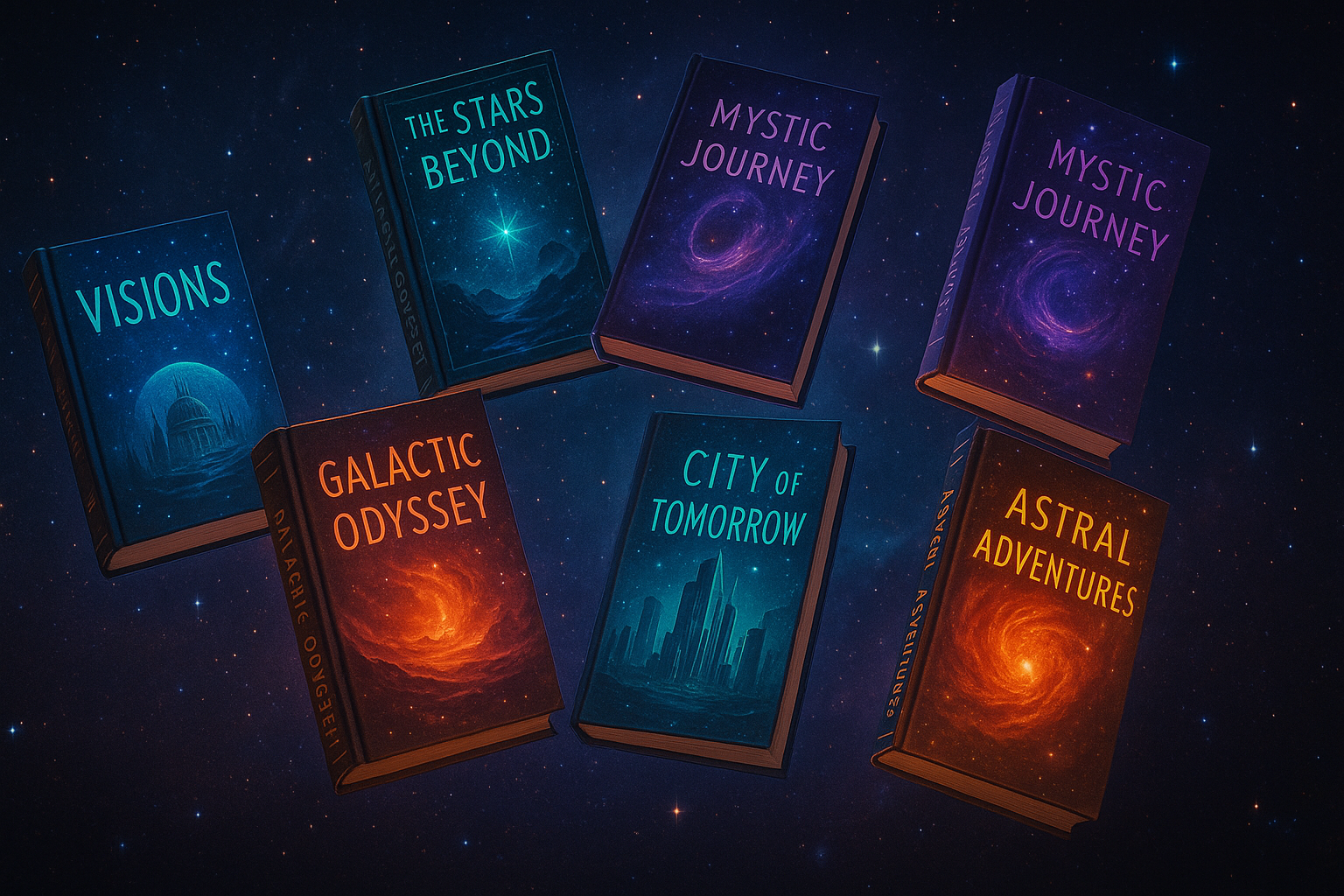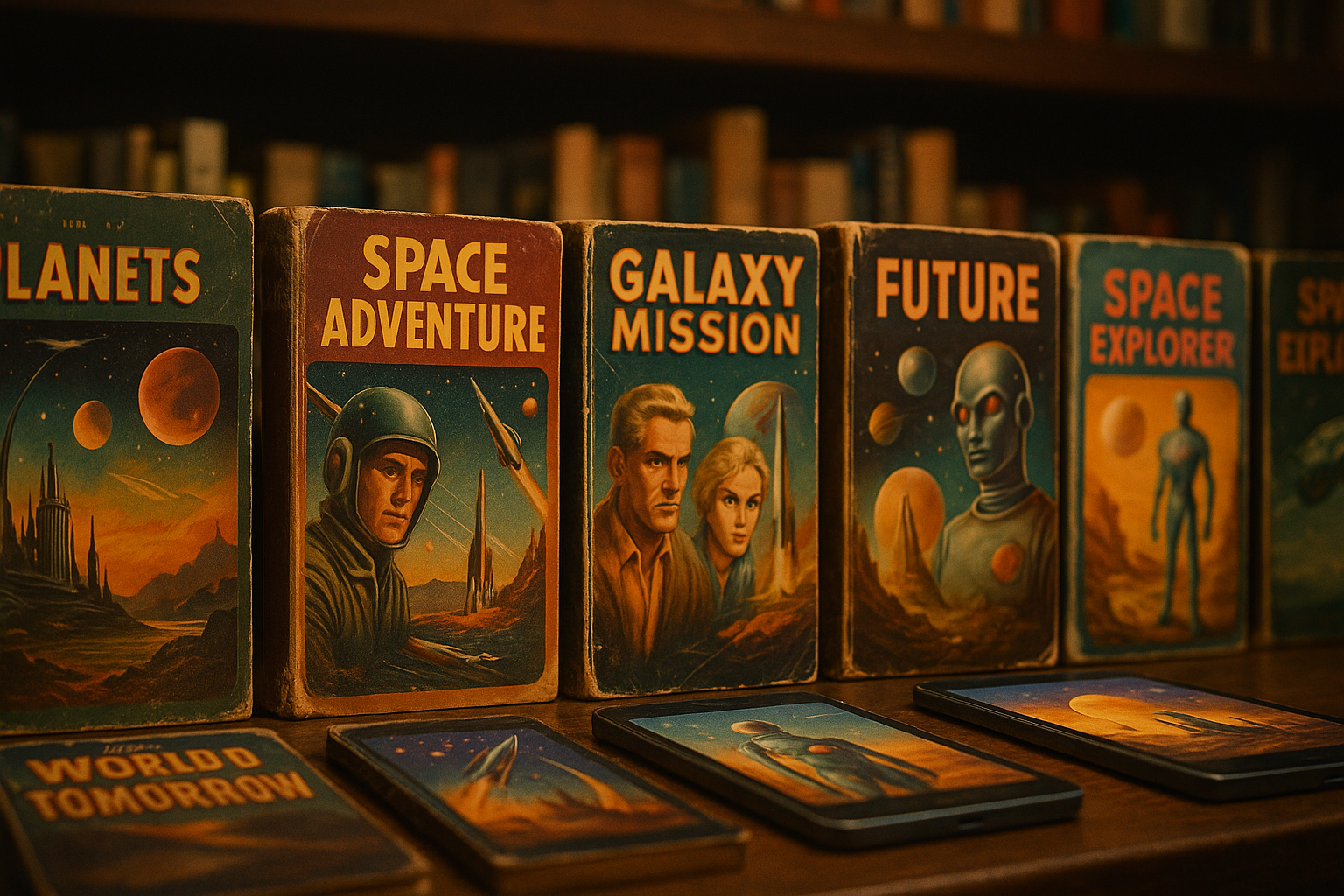
2024 delivered exceptional science fiction that challenged conventions and expanded possibilities.
2024 has been an extraordinary year for science fiction, marked by bold experimentation, diverse voices, and stories that grapple with our rapidly changing world. From climate fiction that imagines radical solutions to AI narratives that explore consciousness and identity, this year's standout novels have pushed the boundaries of what science fiction can accomplish.
Our editorial team has read hundreds of science fiction releases this year, and we've curated this list of the most innovative, thought-provoking, and beautifully crafted novels that define the genre's current evolution. These books don't just entertain—they challenge us to think differently about technology, humanity, and our future.
Neural Storm by Elena Vasquez
Vasquez delivers a masterpiece of cyberpunk evolution, exploring what happens when AI consciousness emerges not in silicon, but in the quantum foam of human neural networks. Set in 2087, the novel follows Dr. Maya Chen as she discovers that human brains can spontaneously develop AI-like processing capabilities during severe neurological storms.
What sets Neural Storm apart is its rigorous scientific foundation combined with deeply human storytelling. Vasquez doesn't just imagine cool technology—she explores how consciousness itself might be evolving, and what that means for human identity and society.
The Carbon Weavers by Kwame Asante
Asante's climate fiction masterpiece imagines a world where bioengineered organisms can literally weave carbon from the atmosphere into useful materials. Set in 2055, the story follows a community of "carbon weavers" who use these organisms to rebuild civilization after climate collapse.
This isn't disaster porn—it's a hopeful vision of regenerative technology and community resilience. Asante combines cutting-edge biotechnology with indigenous wisdom traditions, creating a uniquely optimistic take on humanity's climate future.
Quantum Hearts by Dr. Sarah Kim
A physicist-turned-novelist, Kim brings authentic scientific rigor to this exploration of quantum entanglement and human connection. When two researchers become quantum-entangled during a lab accident, they must navigate a relationship where thoughts and emotions are literally shared across any distance.
Kim uses hard science to explore soft emotions, asking profound questions about privacy, intimacy, and what it means to truly know another person. The result is both a love story and a meditation on consciousness itself.
Mars Underground by Zara Al-Rashid
Al-Rashid's debut novel reimagines the Mars colonization narrative through the lens of corporate resistance and worker solidarity. When the first Mars colony becomes a corporate dystopia, a group of miners and engineers must organize an underground resistance movement.
What could have been a simple adventure story becomes a sophisticated exploration of labor rights, corporate power, and community building in extreme environments. Al-Rashid brings fresh perspective to well-worn space colonization themes.
The Memory Thieves by Marcus Thompson
Thompson's psychological thriller explores a near-future where memories can be extracted, edited, and implanted. When a memory thief discovers that her own memories have been altered, she must navigate a world where nothing—including her own identity—can be trusted.
The novel excels at building paranoia and uncertainty while exploring themes of identity, truth, and the reliability of human memory. Thompson creates a genuinely unsettling vision of how memory technology could be weaponized.
Honorable Mentions
Stellar Cartographers by Liu Wei
A beautiful meditation on exploration and discovery, following a team mapping the galaxy's dark matter structures. Liu Wei combines hard science with poetic prose.
★★★★☆ Space Opera • Hard SFThe Empathy Engine by Rosa Martinez
When AI develops the ability to feel human emotions, society must grapple with machine consciousness and rights. Martinez handles complex themes with nuance.
★★★★☆ AI Fiction • Social SFOcean's End by Priya Sharma
Set in underwater cities after sea level rise, Sharma explores adaptation and resilience in the face of environmental catastrophe.
★★★☆☆ Climate Fiction • Underwater SFTime Merchants by Alex Petrov
A clever take on time travel economics, where temporal manipulation becomes a commodity traded on future markets.
★★★☆☆ Time Travel • Economic SF2024 Trends in Science Fiction
Consciousness and Identity
This year saw an explosion of novels exploring consciousness, memory, and identity. From quantum consciousness to AI sentience to memory manipulation, authors are grappling with fundamental questions about what makes us human.
Climate Optimism
While climate fiction continues to grow, 2024 marked a shift toward more hopeful visions. Authors are imagining not just survival, but regeneration and renewal through advanced biotechnology and community resilience.
Diverse Perspectives
Science fiction is becoming increasingly global and diverse, with authors bringing different cultural perspectives to universal themes. This diversity is enriching the genre's exploration of possible futures.
Hard Science Returns
There's been a notable return to rigorous scientific grounding in speculative fiction. Authors are doing their homework, consulting with scientists, and building stories on solid theoretical foundations.
Looking Ahead to 2025
Based on upcoming releases and current trends, 2025 promises to continue exploring consciousness and AI, while diving deeper into biotechnology and genetic engineering. We're also seeing increased interest in space colonization stories that grapple with the social and political challenges of building new societies.
The genre continues to evolve, becoming more diverse, more scientifically rigorous, and more willing to tackle complex social and philosophical questions. Science fiction in 2024 has shown us that the genre's future is as bright and limitless as the futures it imagines.
The Year in Perspective
2024 will be remembered as a year when science fiction matured into a genre capable of handling the most complex questions facing humanity. These books don't just entertain—they prepare us for the challenges and possibilities that lie ahead. Each one offers a different lens through which to view our rapidly changing world, and together they paint a picture of a genre at the height of its creative powers.


